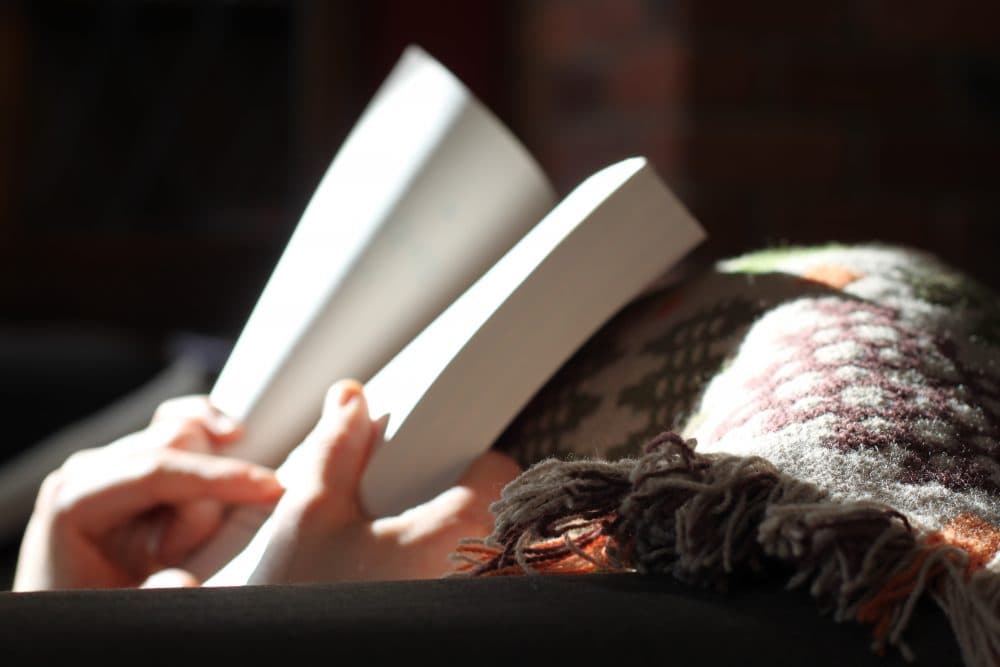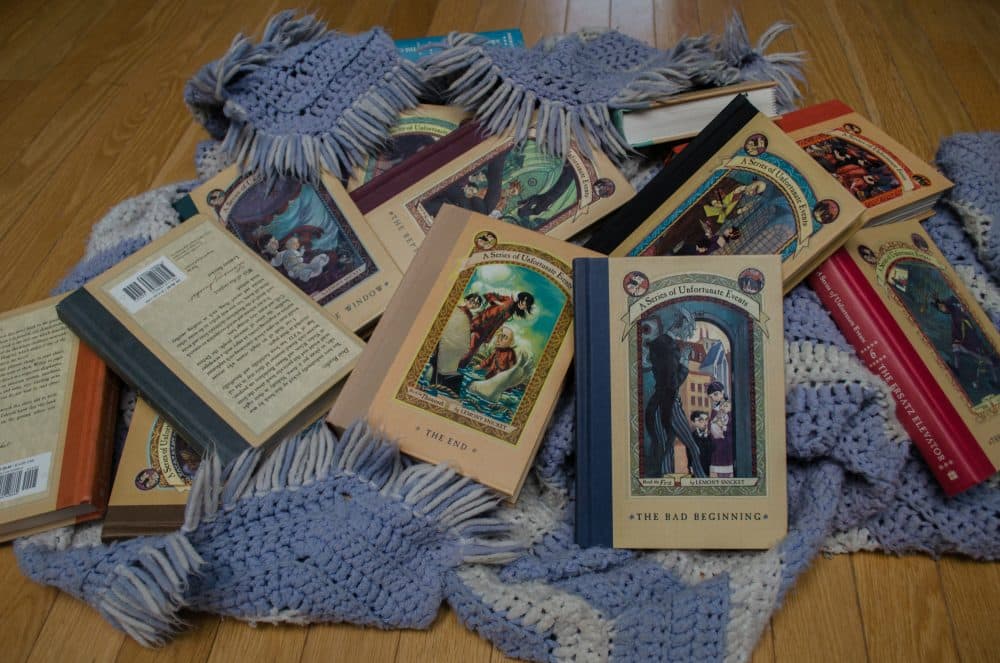Advertisement
Never Stop Reading To Your Kids, No Matter How Old

COMMENTARY
How apropos.
"A Series of Unfortunate Events" is resurgent.
We are fresh off a year that may well have been a branding exercise for the title. We are, some might say, one week away from a focal point of dread. And also? Today is Friday the 13th.
Netflix, take it away.
The streaming media giant is releasing a new adaptation of the kid-lit novels by Lemony Snicket.
As it happens, I wouldn't know a Netflix account if it sashayed up to my shinbones and curtsied.
So why am I excited?
Because I love the mere reminder of this serial fiction masterpiece.
The magic of being read to does not disappear just because it’s no longer a practical necessity.
My family and I went berserk over these dark and hilarious books. We couldn't get enough of the multi-layered and subversive literary labyrinth. Thus, word of the star-studded production flashed me back to a parenting peak experience: reading aloud.
Snuggling up on rocking chairs and couches, lolling together on a bed, huddled around the table for peanut butter sandwiches — there you would find us, day after day, year after year, immersed in imaginary worlds.
And, for some reason, we just didn’t stop. Long after the kids could read on their own — and they both read to beat the band — the family reads endured. Inertia, perhaps. But inertia that, it turns out, I highly recommend.
For a lot of families, read-alouds end once the kids learn to read. I get that. People are different, my tastes are not yours, and your mileage may vary.
I ask only this: consider, at least, that you have options. The magic of being read to does not disappear just because it’s no longer a practical necessity.
We took the read-aloud game into quadruple overtime. What did we gain?
-- My sons relished books that might have been a stretch for them to handle cheerfully alone.
-- Read-alouds created a shared experience; the laughter, the heartaches, and the wonder united us in a communal road trip of the mind and spirit.
-- Plot points, dialogue and literary devices became household in-jokes; our lingua franca was based on the printed word.
-- Piling onto the sofa under an afghan to read and listen gave us the comfort of cozying up, long after the guys had reached the ages when even a wave from your mom in public is the most horrible thing that ever happened to you. (Yes, there was always an afghan. This is New England. There is no spring, summer lasts a minute, and the windows rattle all fall.)

The overarching perks? Beyond the pure fun, family reads helped make my sons the readers and thinkers and listeners and dreamers they are, and helped forge unbreakable bonds. The older the kids became, and the further they traveled from the land of pretend, the more they seemed to appreciate the oasis of the read-aloud.
As for the Lemony Snicket universe, it is perched atop our read-aloud pantheon. We dove into "The Bad Beginning: Book the First" as soon as the ink was dry, when my boys were in early elementary school. The novels about the ill-fated and ingenious Baudelaire siblings and the evils of a treacherous world are a gold mine of verbal sophistication and wit. But these wild tales of a perilous childhood among ludicrous villains and decent souls also zeroed in on a slew of emotional touch points. They gave us a surprisingly helpful navigational tool for real-life feelings. In fact, after 9/11, reading the next book felt like therapy.
The older the kids became, and the further they traveled from the land of pretend, the more they seemed to appreciate the oasis of the read-aloud.
But children grow, their dance cards fill up, and changes sneak into traditions. Eventually, reading aloud slipped into the category of something that we used to do. By the publication of "The End: Book The Thirteenth,” my big guy was in high school, my little guy was in middle school, and family reads were but a memory.
And yet, we agreed: this had to be a read-aloud. And we understood, without discussion, that this would also be an end of sorts for us.
How rare, how poignant, how lucky in a way, to grasp that an ordinary moment is the last such moment in a long beautiful string of the same.
We still managed to fit together on the tattered couch, under the ratty afghan, even with those long skinny teenage legs fighting for position. Once upon a time, these brothers sat on my lap to turn the pages of picture books. That afternoon, years ago, as we reached the ultimate chapter of “A Series of Unfortunate Events,” the tears cracked my voice. And, just like that, the read-aloud reins passed, in the final paragraphs, to the adolescents.
Keep reading to the kids until you cry yourself silly, people.
And Netflix, bring it on. Sign-in info, anyone?

